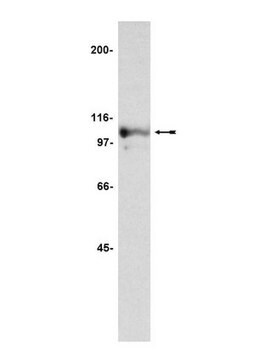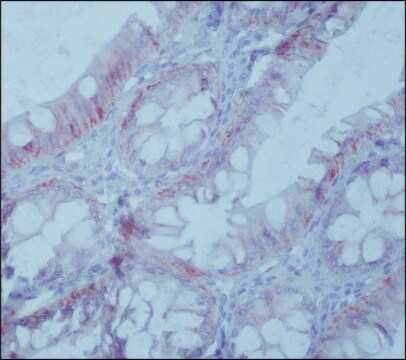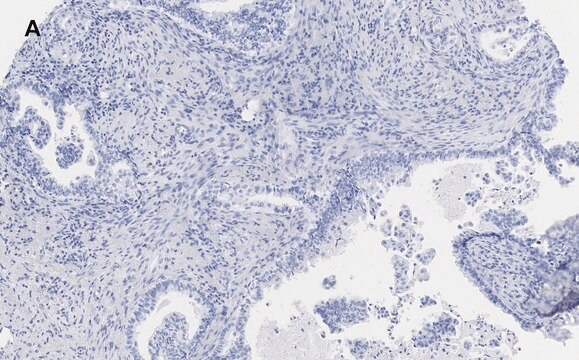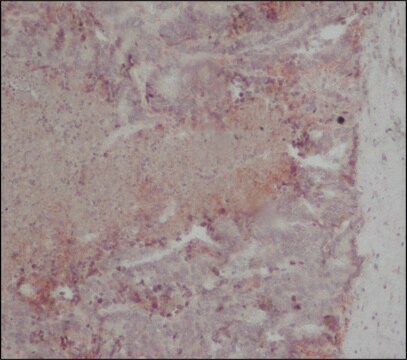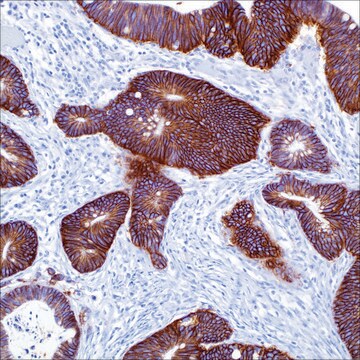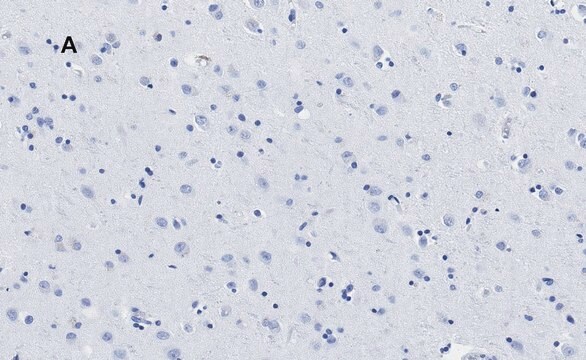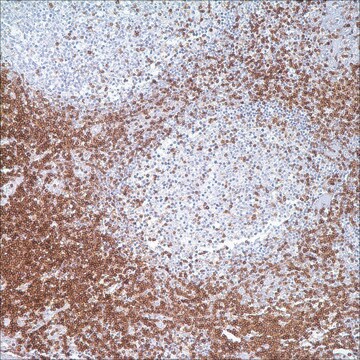MAB4444
Anti-Epithelial Cell Adhesion Molecule (EpCAM) Antibody, clone 8
clone mab 8, from mouse
Sinónimos:
Adenocarcinoma-associated antigen, CD326 antigen, Cell surface glycoprotein Trop-1, Epithelial cell surface antigen, Epithelial glycoprotein, KS 1/4 antigen, Major gastrointestinal tumor-associated protein GA733-2, antigen identified by monoclonal antibo
About This Item
ICC
WB
immunocytochemistry: suitable
western blot: suitable
Productos recomendados
biological source
mouse
Quality Level
antibody form
purified immunoglobulin
clone
mab 8, monoclonal
species reactivity
human
technique(s)
flow cytometry: suitable
immunocytochemistry: suitable
western blot: suitable
isotype
IgG2aκ
NCBI accession no.
UniProt accession no.
shipped in
wet ice
target post-translational modification
unmodified
General description
Specificity
Immunogen
Application
Western Blot Analysis: A previous lot was used by an independent laboratory in WB. (Ng, V., et al., 2010)
Stem Cell Research
Pluripotent & Early Differentiation
Adhesion (CAMs)
Quality
Immunocytochemistry Analysis: 1-10 µg/mL from a previous lot detected epithelial cell adhesion molecule (EpCAM) in human embryonic stem cells.
Target description
Physical form
Storage and Stability
Analysis Note
Human embryonic stem cells
Other Notes
Disclaimer
Optional
Storage Class
12 - Non Combustible Liquids
wgk_germany
WGK 1
flash_point_f
Not applicable
flash_point_c
Not applicable
Certificados de análisis (COA)
Busque Certificados de análisis (COA) introduciendo el número de lote del producto. Los números de lote se encuentran en la etiqueta del producto después de las palabras «Lot» o «Batch»
¿Ya tiene este producto?
Encuentre la documentación para los productos que ha comprado recientemente en la Biblioteca de documentos.
Nuestro equipo de científicos tiene experiencia en todas las áreas de investigación: Ciencias de la vida, Ciencia de los materiales, Síntesis química, Cromatografía, Analítica y muchas otras.
Póngase en contacto con el Servicio técnico
